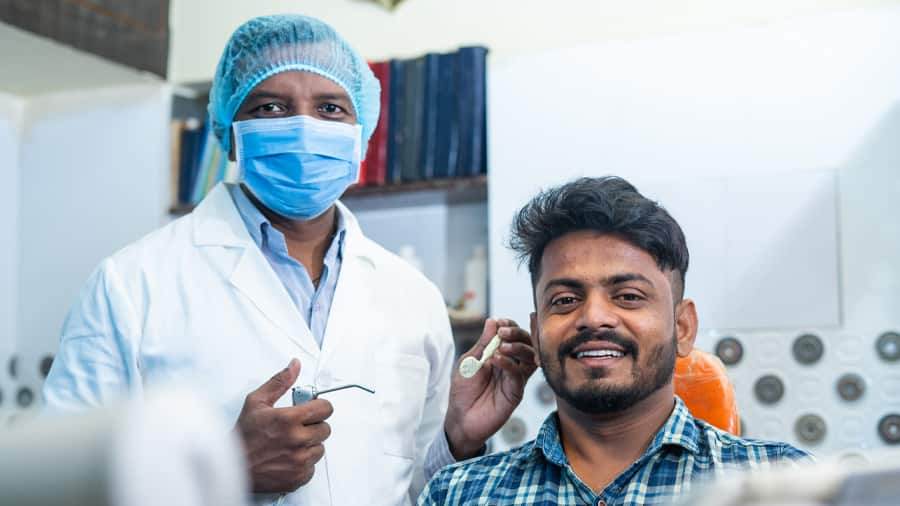Accumulation of dental plaque is thus a risk factor for dental caries and periodontal diseases since the acidic byproduct of plaque wears away at the enamel of the teeth causing demineralization.
Luckily for us, the body is constantly working to counteract the effects of tooth demineralization through remineralization. This is the reverse literally, where mineral compounds such as calcium and phosphate, present in our saliva get added back to the tooth’s surface. Teeth remineralization is thus a reparative process akin to teeth nourishment, which occurs naturally and daily inside the mouth. This teeth nourishment process repairs the lost enamel (outermost part of the tooth) and helps in preventing cavities. Remineralization replaces lost minerals in the teeth to keep them strong and prevent tooth decay.
Who needs to nourish teeth?
The concern though, is that for a large proportion of us, we seem to be losing our fight to maintain the fine balance between demineralization and remineralization. Dental caries and/or tooth decay is the most prevalent, non-communicable disease worldwide, affecting 60-90% of children and an estimated 2 billion people across the globe. [9]
How can I nourish my teeth?
Is there more we can do? Of course, oral hygiene plays a very important role and fluoride-based toothpastes are known to preserve our tooth enamel. Added to this are clinical trials that have shown the development and validation of a new technology based upon 1.5% arginine for everyday use in the prevention and treatment of dental caries. [10]
What is arginine? Is arginine good in toothpaste?
[9] WHO: Oral Health – Key Facts
Arginine is an amino acid, which is one of the building blocks of proteins and is naturally found in foods such as fish, meat, and nuts. Studies have proven that arginine toothpaste increases surface microhardness with a positive remineralization impact. Besides, arginine toothpaste with fluoride achieves better nanobiological and nanomechanical properties than toothpaste with just fluoride, which may have a big impact on the battle against early enamel caries. [11]
Arginine decreases the risk for dental caries by elevating plaque pH through the activity of arginine deiminase in oral bacteria and helps the mouth fight against tooth decay. A new evolutionary toothpaste with a formula using arginine, fluoride, and natural calcium to build the fundamentals of the "New Strong" can work as the new fuel that fights and fortifies our teeth. Ensure you discover this key nutrient today!
This article is intended to promote understanding of and knowledge about general oral health topics. It is not intended to be a substitute for professional advice, diagnosis or treatment. Always seek the advice of your dentist or other qualified healthcare provider with any questions you may have regarding a medical condition or treatment.
ORAL HEALTH QUIZ
What's behind your smile?
Take our Oral Health assessment to get the most from your oral care routine
ORAL HEALTH QUIZ
What's behind your smile?
Take our Oral Health assessment to get the most from your oral care routine














